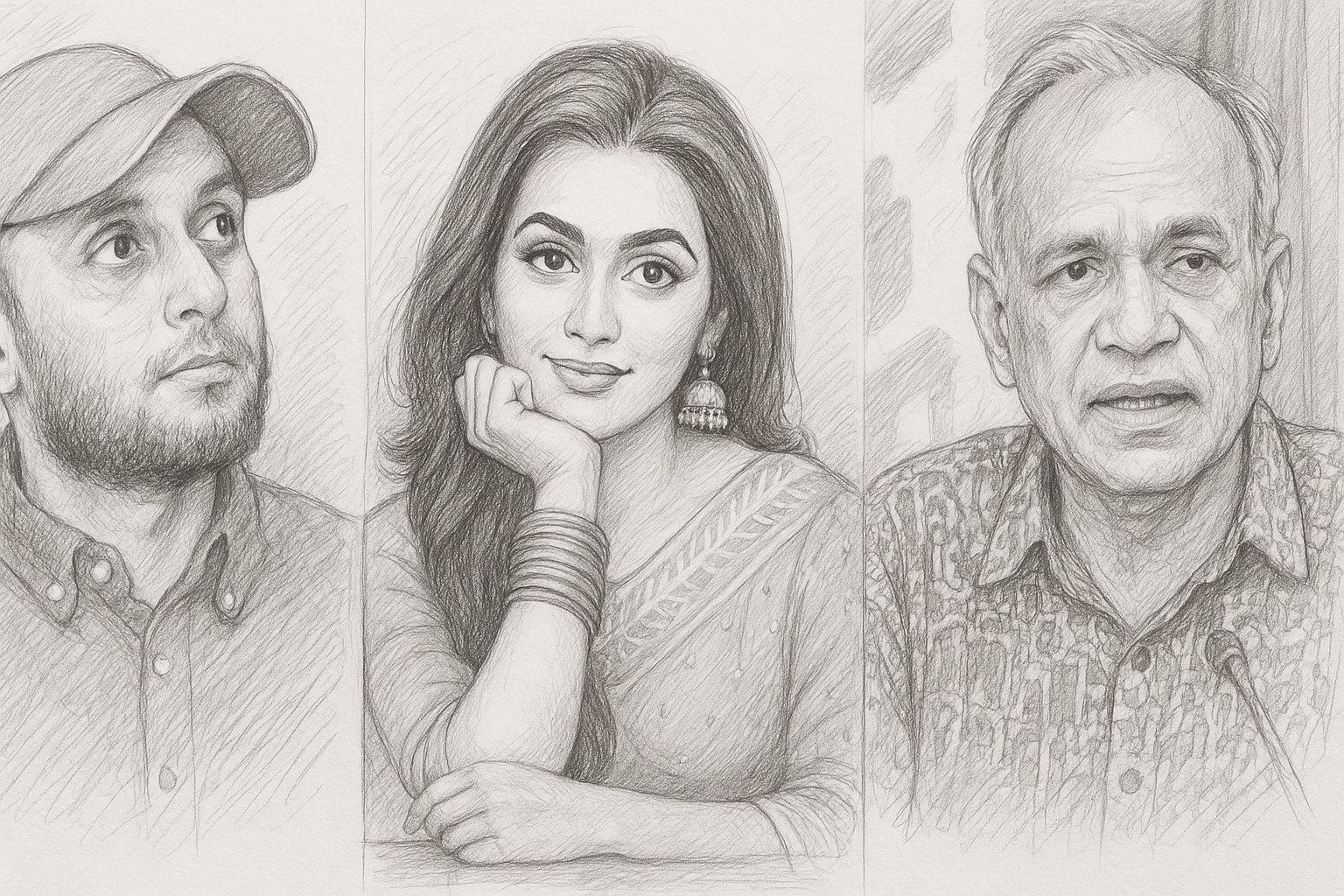There are certain words that evolve beyond the dictionary. “Embarrassed” is one of them. Literally, it means discomfort or awkwardness. But in our beloved bureaucratic republic, “embarrassed” has become more like a tactical invisibility cloak— a linguistic shield behind which we tuck away inconvenient truths and smuggle a full kilogram of reality under the table.
The word has made its latest comeback in response to the arrest of actress Nusraat Faria.
Adviser Mostofa Sarwar Farooki posted on Facebook, “This is an embarrassing incident for us.” In response, the Home Affairs Adviser clarified, “That’s his personal opinion.”
Translation: in the Council of Advisers, some are embarrassed, and some are comfortably not.
Eventually, it turned out no one was truly embarrassed as Farooki himself overcame his embarrassment and quietly deleted the word “embarrassed” from his post.
This flip-flop aside, embarrassment has a long and distinguished lineage in our land.
Back in the Bangabandhu assassination trial, High Court judges would recuse themselves saying, “I’m embarrassed; I cannot hear the case.” At that time, Awami League members protested with symbolic batons, suggesting that not everyone felt too embarrassed to carry a stick.
Since then, the term has become practically institutionalised.
In 2009, during the cantonment house dispute involving Begum Khaleda Zia, judges were again “embarrassed.” In 2017, during the bail hearing of BNP leader Amanullah Aman—same story: “embarrassed.” Multiple judges have used this term to wash their hands clean in Digital Security Act cases. In some cases, they didn’t even show up in court—just scribbled on the file: “Embarrassed. Can’t hear.” As if “embarrassment” were a new branch of judicial philosophy.
In politics, the word is pure poetry.
After the 2004 grenade attack, ministers declared it “tragic and embarrassing.” A noble sentiment that aged poorly.
In 2021, when State Minister Murad Hasan’s lewd audio went public, several in the ruling party declared, “We’re personally embarrassed.” No one, however, dared to go further. It was the political equivalent of a doctor saying, “The patient is rotting. I’m embarrassed,” and then walking away without writing a prescription.
Internationally, the word has earned its stripes.
President Bill Clinton said he was “embarrassed” during the Monica Lewinsky scandal—he then faced a bid of impeachment. Prince Andrew, “embarrassed” by sexual assault allegations, was swiftly escorted out of Buckingham Palace.
But here? If someone says they’re “embarrassed,” we take it as a sign that everything’s just fine—they just don’t feel like talking.
“Embarrassed” has become our national silent monologue. Without saying anything, one says everything. The state says, “I’m not involved, but I know all.” The court says, “I’m neutral—let someone else handle it.” The politician says, “I’m not responsible—but do read between the lines.”
And the people? The people have lost their right to feel embarrassed. Every single day, someone somewhere does something so astonishing that we’re permanently stuck in a state of national embarrassment.
Hence, the time has come for a formal policy. It can be the National Embarrassment Management Policy 2025.
A framework clearly stating who may be embarrassed, when, and under what circumstances. Also, what official steps should follow said embarrassment.
Without such a guideline, we’ll keep using this innocent-sounding but razor-sharp word to cover harsh truths—one “embarrassment” at a time. A harmless little word. A devastatingly precise weapon.


